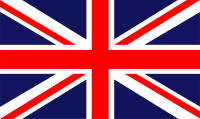Associations to the word «Britain»
Noun
- Great
- Briton
- Baronetage
- Gaul
- Baronetcy
- Coloni
- Peerage
- Tate
- Ireland
- Britannia
- Suez
- Filmmaking
- Saxon
- Scandinavia
- Neutrality
- Thatcher
- Protectorate
- Kangaroo
- Embargo
- Spitfire
- France
- Treaty
- Wigan
- Rhodesia
- Anglo
- Hanover
- Monmouth
- Roman
- Luftwaffe
- Celt
- Blockade
- Warrington
- Churchill
- Papua
- Trafalgar
- Prussia
- Blitz
- Raf
- Paralympic
- Germany
- Belgium
- Hoard
- Balfour
- Claudius
- Salford
- Invasion
- Allies
- Transvaal
- Dominion
- Gibraltar
- Celtic
- Filly
- Russia
- Jacobite
- Austria
- Gaulle
- Romans
- Druid
- Boer
- Romano
- Continental
- Hitler
- Independence
- Imperialism
- Cymru
- Ally
- Continent
- Netherlands
- Brutus
- Spain
- Malaya
- Sardinia
- Bede
- Importation
- Triad
- Opium
- Disarmament
- Reparation
- Conscription
- Walpole
- Declaration
- Mussolini
- Denmark
Adjective
Pictures for the word «Britain»
Wiktionary
BRITAIN, proper noun. The island of Great Britain, consisting of England, Scotland and Wales. [from 10th c.]
BRITAIN, proper noun. (loosely) The United Kingdom.
BRITAIN, proper noun. (now historical) Brittany. [from 13th c.]
BRITAIN, proper noun. (now historical) The British state and its dominions and holdings; the British Empire. [from 17th c.]
BRITAIN, proper noun. (in the plural) The British Empire. [from 19th c.]
BRITAIN, noun. (now rare) (historical) An ancient Briton. [from 15th c.]
BRITAIN, adjective. (obsolete) Briton; British. [16th-18th c.]
Dictionary definition
BRITAIN, noun. A monarchy in northwestern Europe occupying most of the British Isles; divided into England and Scotland and Wales and Northern Ireland; `Great Britain' is often used loosely to refer to the United Kingdom.
Wise words
In words, as fashions, the same rule will hold; Alike
fantastic, if too new, or old: Be not the first by whom the
new are tried, Nor yet the last to lay the old aside.

